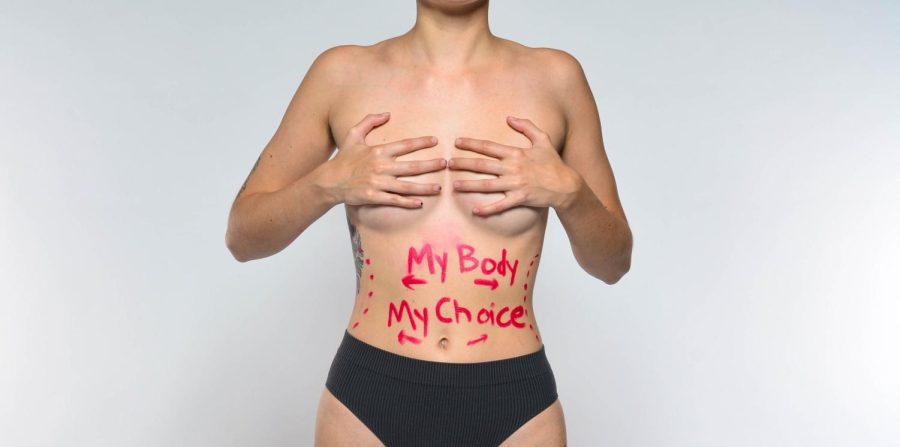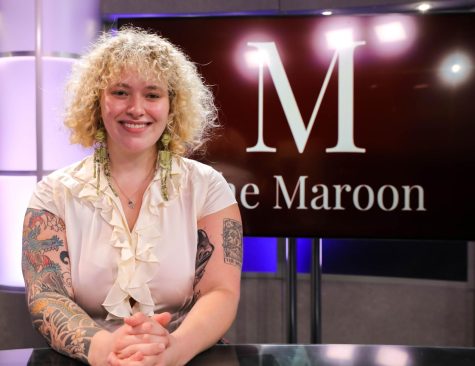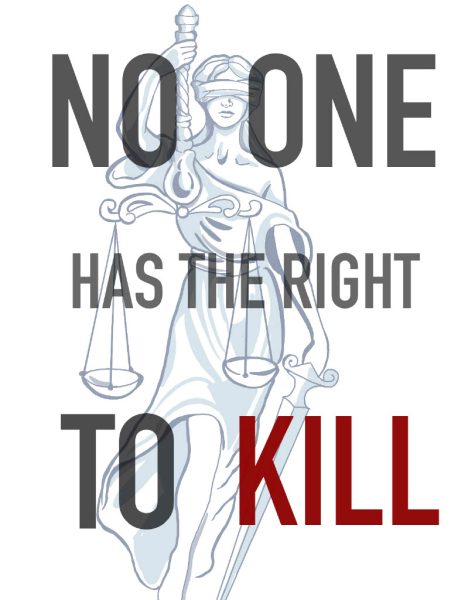OPINION: Plastic surgery is not superficial
March 24, 2022
At age 13, my body began to experience the first signs of puberty: body hair, acne, more pronounced hips, and of course, breast development.
I was seemingly one of the only people in my grade to show signs of this hormonal shift, and as we all know, kids can be especially cruel at this age, and my situation was no exception. Just weeks into my sixth grade year, rumors began to circulate about my body and the “sudden changes” it had experienced over the summer. Before I knew it, the word around campus was that, at age 13, I had gotten breast implants and that was why I looked so “grown-up and slutty.”
I eventually left that school, armed with body dysmorphia and insecurities that only added to the discomfort I felt as a budding gender non-conforming person.
Last year, I decided it was time to make a change. I had been experiencing severe back and neck pain for years due to the overwhelming weight and size of my breast tissue. I began considering a reduction mammoplasty (or breast reduction) as a solution but knowing the stigma around plastic surgery, I feared what others might think about me.
Despite my unease, on February 19, 2021, I underwent reduction mammoplasty after almost a year of serious deliberation. Once my surgery was complete and the healing was over, I felt the best I had about my body for quite some time. Although difficult, the surgery finally allowed me to feel some sense of body and gender euphoria.
“If gender dysphoria is the dark cloud over our heads, gender euphoria is the sunbeams that warm our skin,” said Plume, an organization that provides gender affirming hormone therapy all over the world. “It’s the rosy light inside us that we feel when we are seen and loved. It’s the invisible rainbow over our heads that glitters when we own our true selves,” it said.
This feeling of euphoria lasted for a while until I started opening up to people about my surgery. I got horrific comments suggesting I had ruined my body and that I was no longer naturally beautiful. People said that I was fake and just trying to live up to some external standard of beauty.
This is when I began to realize that no matter what I did with my body, whether it was all-natural or pumped full of silicon, people would always have something to say about my appearance.
After I had gone through surgery to obtain a more proportional and “natural looking” breast size, people accused me of being fake and superficial, but before I had the surgery, people just assumed my body was fake. There was no winning for me.
In the end, I came to the conclusion that it’s not my problem what other people think of me nor is it my duty to make changes or hide myself to make others comfortable. Having elective plastic surgery was a huge part of this journey towards self-acceptance despite its reputation for being a superficial act.
Plastic surgery has long experienced this dark cloud of condemnation and secrecy despite its prevalence in our global culture.
According to Forbes, some 11.36 million plastic surgery procedures were carried out around the world along with another 13.6 million nonsurgical procedures in 2019 alone.
These numbers did see a slight dip in 2020 and 2021 due to COVID-19 diverting medical resources. However, even the pandemic did not stop folks from pursuing elective procedures with an increase in both surgical and nonsurgical procedures in the United States in 2020, according to research done by the International Society of Aesthetic Plastic Surgery.
So, why does something as common as plastic surgery continue to be such a topic of shame and silence? How can we work as a global community to dismantle this outdated standard of judgment, and how can we subvert the narrative surrounding plastic surgery to reflect the true nature of the practice?
One obvious parallel that can be examined is the fight for women’s reproductive health rights. The pro-choice movement revolves around the idea of “my body, my choice,” and plastic surgery should be approached under the same lens.
Everyone gets plastic surgery for their own unique reason. Some people get it to combat chronic pain, some people use it as a tool for gender and body affirmation, while others get it because they have things they would like to change about themselves in general. Each one of these is a valid reason to pursue plastic surgery.
And we need to bring that to the forefront.
When people are open and honest about plastic surgery, or a lack thereof, this not only creates more accurate notions of obtainable appearances but also brings the conversation of plastic surgery out of the closet and into the limelight. This small change could have so many positive effects within our global society.
It is okay to want plastic surgery. It is okay to get plastic surgery. What is not okay is lying about surgery that you have had, creating unrealistic beauty standards for those who cannot afford surgery or are unaware that surgery is an element of your appearance, and in turn adding to the narrative of shame and secrecy clouding plastic surgery’s reputation.
What is also unacceptable is judging people for using plastic surgery as a form of body affirmation. Wanting plastic surgery does not inherently mean you are fake or superficial, but the stigma surrounding it combined with a lack of information and openness on the topic has led people to believe it is okay to harass and shame those who have had plastic surgery.
Obviously, there are circumstances that call for withholding facts about surgery. For example, when transgender people get gender affirming surgery, it is not appropriate to ask them about surgery unless they are comfortable with receiving questions. However, outside of situations like these, I encourage people to be honest about their body journey.
This step is especially necessary among celebrities and others who thrust themselves into the spotlight. These high-powered people already have so many resources outside of surgery to reach their own standards of beauty.
The rich and famous have access to top personal trainers, expensive treatments like cryotherapy and photo-retouching, and the best and most nutritious foods on the market. On top of this mountain of privilege at their disposal, many rich and famous people opt to get plastic surgery to enhance their appearances.
There is absolutely nothing wrong with wanting to look a certain way and using surgery to help you get there. Plastic surgery has been a part of human history since 800 BCE and will continue to have increasing relevance to our daily lives as it becomes more accessible and widespread. It is about time we get honest about the changes we are making, so we as a community can change the narrative surrounding cosmetic surgery.


















